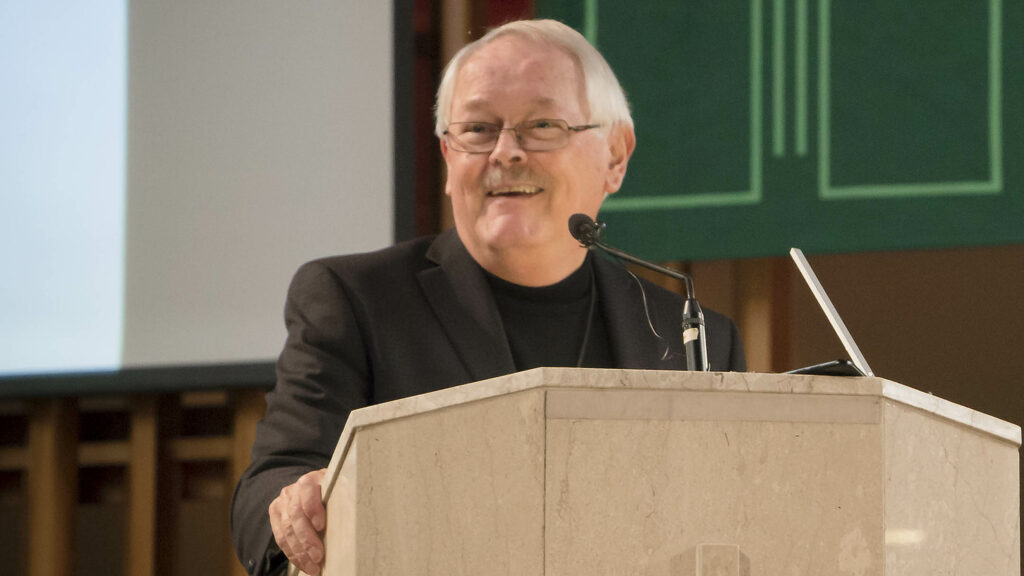Denominational identity in me runs deep. Born, baptized, and raised a Roman Catholic, Roman Catholicism is my second nature, like a brand on my skin. I have no regrets about the congenital grip this has on me, even though now I think of it more as a foundation than as an endpoint in my faith journey.
The Roman Catholicism in which I was raised inserted me into the mystery of Christ – Jesus, the church, the sacraments, the Sermon on the Mount. For this, I couldn’t be more grateful. It also taught me to be slow in judging anyone. However, it also taught me (with some allowances for Protestants) that basically only Roman Catholics would go to heaven, that the Roman Catholic Eucharist is the only one that yields the full “real presence”, and that Roman Catholicism is the only fully authentic way of being Christian. Moreover, non-Christians (those not baptized) could not go to heaven, except by grave exception. Only later did I learned that a number of other Christian denominations and world religions returned the favor and saw Roman Catholicism as deviant.
Things have changed for me and for many others. I am still unwaveringly a Roman Catholic, but now I am living out my faith and my Roman Catholicism in communion with Anglicans, Episcopalians, Protestants, Evangelicals, Jewish believers, and Muslims, all of whom are now cherished faith companions for me. At this stage of my life, I appreciate very deeply the truth (that Ephesians affirms) that ultimately there is one Lord, one faith, one baptism, and one God who is Father of all, especially as I come more and more to appreciate that all of us who share this one God also share the same heartaches.
Several years ago, I met with a group of Divinity students at Yale University. The students came from a variety of Christian backgrounds and denominations, but shared a common goal; all were training for some kind of ministry, lay or ordained, in their particular denomination. It was an open discussion where they asked me questions. Two questions dominated the discussion. The first was a practical one, “How do you get a job in the church?” The second pertained to our topic. A number of the students asked this question, “Can I belong to more than one denomination at the same time? Can I be an Evangelical and Roman Catholic at the same time? Can I be at one and the same time a Protestant Evangelical Roman Catholic if I value aspects of all three faith traditions?”
I was without hard answers and their questions left me with my own questions which I am encountering daily in the school where I teach. The Oblate School of Theology where I teachhas a PhD program in spirituality that draws students from a variety of Christian denominations. These students are together in the same classes, the same dining halls, and the same social circles for the years they are studying here, all within a Roman Catholic institution. Very quickly, in months rather than years, as they study, pray, socialize, and share with each other their common ideals and struggles, denominational issues basically disappear. Nobody quite cares what denomination anyone else belongs to anymore. Not that they make light of it and that there is some generic melting down of the various denominational identities. That hasn’t been happening. The opposite – in the ten years we have had this program, not a single student has converted to another denomination.
However, their view of other denominations and of their own denomination has changed; in essence, it has been enlarged. There is a universal respect for each other’s denominations, and more than that. As these students focus on spirituality, they find that this can take them to a place where each can be affectively supportive of other denominations, even while more deeply valuing his or her own.
The deep lesson is this: there is a fellowship and an intimacy in faith that we can have with each other, and an affective support we can give each other that lies beyond our denominational differences. By studying together and sharing a common faith (one that lies beyond denominational differences) we are realizing that what is common to us is infinitely greater (and more important) than what separates us. We are also realizing that we all have the same heartaches.
Moreover, this isn’t just a rarified experience happening in some divinity schools. More and more, this is becoming the common Christian experience.
So why the continued suspicion of each other? Why are we defending more our own denominational specificity than proactively moving towards embracing each other in a common faith, especially since this can be done without threatening our own denominations and separate ecclesiologies?
The invitation here is not to move towards an uncritical syncretism that blinds itself to genuine denominational differences, but rather to begin more and more to embrace all of our brothers and sisters in the faith, and not just our own kind.

